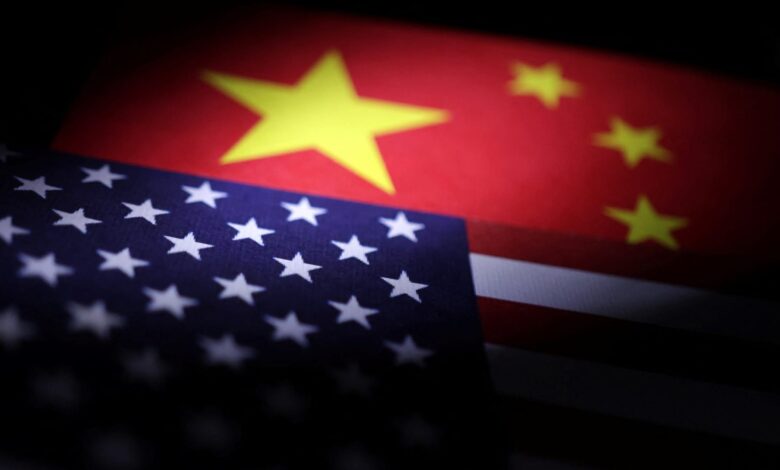China vows retaliation against countries that follow U.S. calls to isolate Beijing

BEIJING — China on Monday warned it will retaliate against countries that cooperate with the U.S. in ways that compromise Beijing’s interests, as the trade war between the world’s two largest economies threatens to embroil other nations.
China’s warning comes as U.S. President Donald Trump’s administration is reportedly planning to use tariff negotiations to pressure U.S. partners to limit their dealings with China. Trump this month paused major tariff increases on other countries for 90 days, while hiking duties further on goods from China to 145%.
“China firmly opposes any party reaching a deal at the expense of China’s interests. If this happens, China will not accept it and will resolutely take reciprocal countermeasures,” the Chinese Ministry of Commerce said, according to a CNBC translation.
The ministry cautioned about the risk to all countries once international trade returns to the “law of the jungle.”
The statement also sought to cast China as willing to work with all parties and “defend international fairness and justice,” while describing the U.S. actions as “abusing tariffs” and “unilateral bullying.”
In a shift toward a harder stance this month, China retaliated against U.S. tariffs with levies of 125% on imports of American goods. Beijing has also restricted critical minerals exports and put several, mostly smaller, U.S. companies on blacklists that restrict their ability to work with Chinese companies.
Analysts don’t expect the U.S. and China to reach a deal anytime soon, although Trump on Thursday said he expected an agreement could be reached in the next three to four weeks.
Chinese President Xi Jinping last week visited Vietnam, Malaysia and Cambodia in his first overseas trip of 2025. In official Chinese readouts of his meetings with the three countries’ leaders, Xi called for joint efforts to oppose tariffs and “unilateral bullying.”
Since Trump imposed tariffs on China during his first term, the Asian country has increased its trade with Southeast Asia, now China’s largest trading partner on a regional basis. The U.S. remains China’s largest trading partner on a single-country basis.
“For African countries, or every country, it should be everyone cooperating, together responding to the U.S.,” Justin Yifu Lin, dean of the Institute of New Structural Economics at Peking University, told reporters on Monday. That’s according to a CNBC translation of his Mandarin-language response to a question from a reporter from Mali about solutions to the trade war.
More and more voices will likely call the U.S. policy “unreasonable and illogical,” he said. “I’m confident that unreasonable and illogical things can’t last that long.”
While Lin did not rule out the possibility of full decoupling between the U.S. and China, he said he expected the two countries would likely remain linked because of U.S. consumer and business reliance on China.
Last week, China’s Ministry of Commerce replaced its top international trade negotiator with Li Chenggang, who also became a vice minister and has been the country’s ambassador to the World Trade Organization. China has filed a lawsuit against the U.S. with the WTO over Trump’s latest tariff increases.




